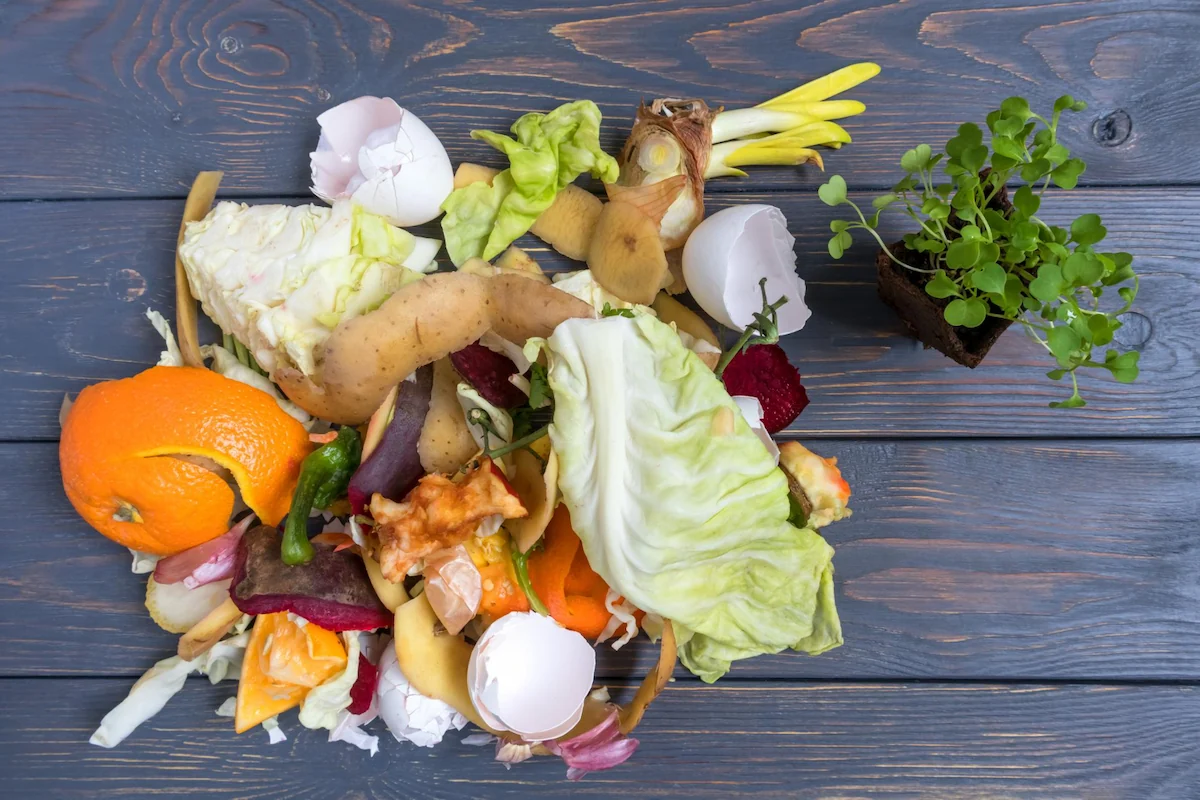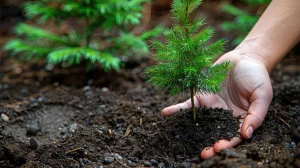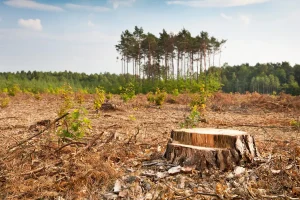Table of Contents
Organic waste is a type of waste that is biodegradable and comes from natural substances, such as food waste, leaves, and plant waste.
Despite being underestimated, the right organic waste management can reduce the number of waste entering landfills and create a cleaner environment.
This article discusses organic waste management that can be done at home or in the surrounding environment to make you participate in preserving the Earth. Find easy and effective ways to process organic waste below!
Organic Waste Management Ideas

Organic waste is a kind of waste coming from living creatures, either animals or plants, such as leaves, animal waste, and food waste.
With the right organic waste management, we not only can lower the waste volume in landfills but also contribute to nature preservation. Unfortunately, many people still do not know how to manage organic waste properly.
Based on Badan Pusat Statistik, there are 39.87% of respondents who do not know how to sort waste. This means that many people do not understand the importance of sorting and managing waste, including organic waste, which has a big potential to be leveraged.
With a little effort and creativity, kitchen waste, such as leftover vegetables, fruits, or even eggshells can be turned into organic fertilizer useful for nourishing plants. Let’s take a look at some of the following ways to process organic waste that you can try at home:
1. Sorting the Waste Based on the Types

The first step of organic waste management is sorting it based on the types. This sorting aims to make the next process easier.
Organic waste, such as food waste, fruit peels, and dry leaves needs to be separated from inorganic waste, such as plastic, glass, and paper. By sorting waste, you can process organic waste effectively and efficiently.
2. Practicing 3R Principles
3R principles include reduce (reducing the number of waste), reuse (reusing the stuff). And recycle (recycling material).
Reduce refers to efforts to minimize the use of items that can produce waste. On the other hand, reuse means reusing existing items so that it can reduce the potential for waste.
In contrast, recycling is the process of processing waste into new products that are useful and have economic value. This method can be an effective first step in implementing a zero-waste lifestyle.
3. Altering Stuff

The next organic waste management tip is to switch to more durable and environmentally friendly stuff. This stuff usually has better quality that can be leveraged for a long time, like bamboo straw and cloth-based shopping bags.
Read also: 3 Ways to Turn Clothes Waste into Useful!
4. Composting
Having a composting facility at home not only reduces organic waste but is also beneficial for the home garden. This is because the compost produced can be an environmentally friendly natural fertilizer.
Yet, composting is seen to be time and place-consuming. Therefore, this composting process should be supported by great preparation, like finishing the food to prevent leftovers.
5. Grouping Animal-Based Organic Waste

If you plan to make a composter for your organic waste, make sure to separate animal-based waste, such as fish gills and chicken bones.
Animal-based organic waste can disturb the composting process and increase the risk of failing.
6. Making Biopore
Biopore is a simple solution for organic waste management without intensive monitoring. Aside from being effective, biopore gives proper nutrition for the surrounding soil biota and functions as a water catchment, preventing flooding or puddles.
By using pipe, you can create a practical and cost-effective biopore system as well as keep your house safe from puddles during the rainy season.
Read also: How to Save Electricity: 10 Wise and Simple Ways to Do It
7. Creating Eco Enzyme

Leftover fruit peels and vegetable wastes usually thrown away can be used to make eco-enzyme liquid, which is a method of processing fruit and vegetable peels that are fermented with various ingredients.
By using plastic bottles as containers, organic waste, palm sugar, and water, you can create eco enzymes for cleaning the floor, toilet, and kitchen. The fermentation process takes about 3 months and does not smell or attract insects.
In addition to reducing organic waste, eco enzyme liquid also saves costs because you do not need to buy cleaning substances.
8. Depositing the Organic Waste
If you do not have the time or space to process your organic waste, you can use waste management services. Many cities or communities provide regular organic waste collection services.
By depositing organic waste to them, you can contribute to the circular economy. This is because the organic waste you deposit can be managed into high-quality composts for farming and gardening.
Those are some organic waste management you can try at home or in the surrounding environment. By managing organic waste properly, you are participating in efforts to preserve the environment.
With awareness and active participation, you can create a cleaner environment and support the sustainability of natural resources.
Thus, are you ready to be Warga Asri? Register yourself now and be Indonesia Asri’s vanguard. Make every step you take a real inspiration and start a change for a healthier earth!
Read also: Figure Out How to Save Water with These 7 Easy Tips!










